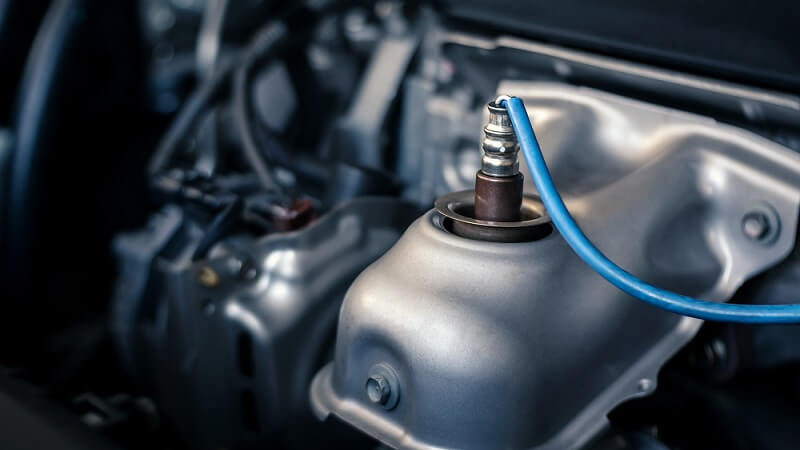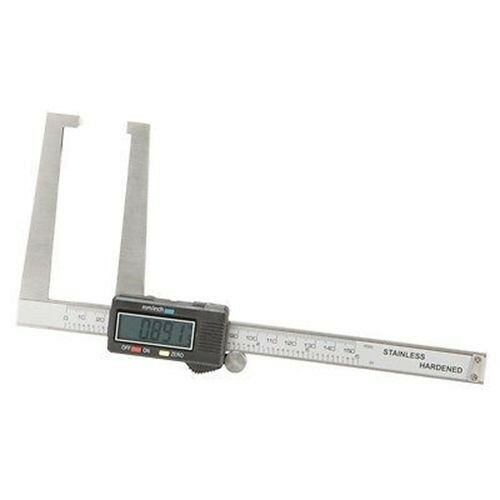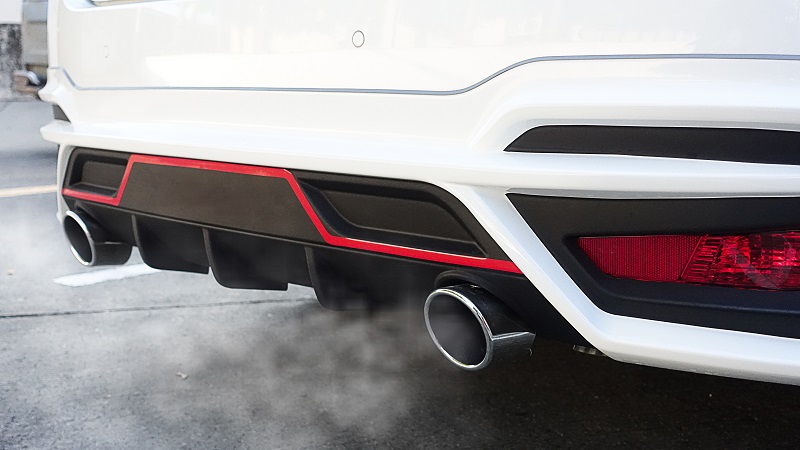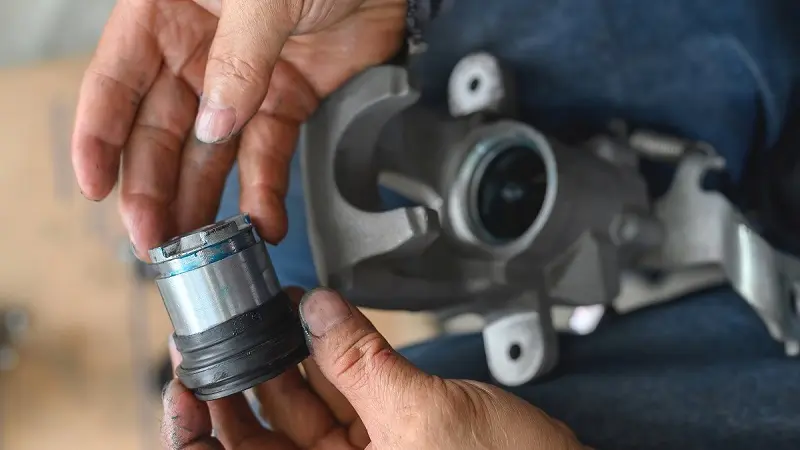There can be several reasons for your car engine vibration. Especially it is very common if you are driving an old car. Here are the most common causes and symptoms of car engine vibration and their solutions.
1. The crankshaft damper

One of the most common reasons for engine shaking can be the crankshaft damper. The main purpose of this component is to decrease vibration. It is usually found in diesel engines. But if it is worn out and stopped working, the engine will shake more than usual. As soon as you notice this problem, contact your mechanic.
2. Faulty engine mount

Another cause of engine vibration is a defective engine mount. This component keeps the engine attached to the chassis, and it also reduces the vibration of a running engine. Over time it can get damaged and cause vibration.
3. Spark Plug Issues

If you have a problem with the vehicle’s spark plugs, the engine will vibrate more than usual. Replacing the spark plugs is very easy; it can be done at home if you have all the necessary tools and some knowledge of how to do it. (Check the owner’s manual if you are not sure how to do it)
4. Weather conditions

In wintertime you can feel engine vibration more than what is normal. Because in cold weather, the engine cannot run at its optimum level, so vibration increases.
5. Car axle

Sometimes it seems like the engine shaking problem is rooted in the engine itself. In this case, the problem can be in the axles of the vehicle. After an accident, the axles can be damaged, even when there is no apparent sign of damage. That’s why right after a collision you should take your car to a mechanic.
6. Wheel Problems

Wheels are one of the most common reasons for engine vibration. If you feel the vibration is coming directly through the steering wheel, a misaligned wheel or worn out wheel bearings might be the problem. Also, warped ball joints can cause vibration at high speeds.
7. Tire Problems

Almost 80% of car vibrations are related to tires. Balancing tires, or rotating tires, or tire replacement can solve such vibrations.
8. Brake Problems

If you feel vibration when you apply the brakes, then your car may have a problem with broken or worn-out brake rotors. Heavy wear and tear can cause the brake rotors to get warped, so it becomes hard for brake pads and calipers to grip them during the time of applying the brake.
These are some of the common engine vibration problems that might be affecting your driving experience. If you notice car engine vibration, check out for one of these causes and find out what’s the exact reason.
How To Fix Car Engine Vibration
Low-level transmission fluid, tires issues, or brakes error can also lead to car engine shaking. But the main reason causing vibration to your engine is a cylinder. Here are some tips for you to follow:
Step 1: Determine The Problem Source
First of all, to fix the problem, you need to find the source of this issue. The easiest way for drivers is to check the diagnostic trouble codes. OBD-II scanner is a useful tool that can help you to determine whether your cylinders have one, multiple, or no misfire at all. If there are misfires, the reasons usually come from one of four systems: control sensors, fuel supply, air supply, or the computer. Check the amount of air, fuel, or the failure in ignition.
Step 2: Analyze The Problem
Understanding the problem from the beginning can help you a lot because different problems have a different way to solve them. For example, if you have single-cylinder misfires, it is often caused by a failure in the engine. If there are multiple misfires from the cylinder, this can usually be caused by the outside sources, rather than by the engine itself. Remember, mechanical failure and unbalanced rotating assembly causes no misfire code.
Single-Cylinder Misfires
The single-cylinder misfires can be because of the fuel injector problems or failures in the ignition. Check spark plugs, ignition coil, and plug wires. It is easy to determine and repair if the problem is in the cylinder’s coil. Many vehicles use one coil to power two cylinders, so if that single-coil has any problem, both cylinders mostly die as well.
If you received a lean condition notification diagnostic code, then the problem is in the fuel injector.
Random Multiple Misfires
Air intake, fuel supply or electronics systems can also lead to multiple misfires. A dirty airflow sensor, sensor failure, and vacuum leaking air can be potential culprits. Air restrictions in the intake can cause vibrations for your car, as well.
Mechanical Failures
Mechanical failures such as problems with the camshaft, damaged head gasket, broken piston ring often make your car shaky through cylinder misfires. If there is no misfire, then most probably you have an unbalanced rotating assembly, causing engine shaking. Many vehicles use balance shafts or harmonic balancer to reduce car engine shaking, so if you have one, don’t forget to check it as well as it might be the reason for shaking problem.
Step 3: Replace Damaged Car Parts
After determining the causes of car engine vibration, it is time to replace broken parts.
Here is a helpful guide for you if you have a vacuum leak, which is the most common problem with car engine shaking. Vacuum leak leads to idling slower and damages the engine. The symptoms in this case are the cracks and holes on the vacuum hoses.
- Open the trunk and locate the vacuum system. Usually, they are located right in the middle. Remember to check the hoses carefully to make sure it is a real problem.
- Remove the damaged vacuum hose and put it on the safe side.
- Remove the vacuum lines. The lines are located inside of the vacuum hose. In cold temperatures, the vacuum lines can be damaged and shattered, which could create leaks or be broken.
- Replace the broken parts with a new one.
Remember, safety comes first, always wear gloves and eyewear to protect yourself.
Frequently Asked Questions
What Is The Cause Of Engine Vibration?
First of all, it could be old spark plugs producing unstable power delivery or something more serious like broken engine mounts. There are several reasons for the engine shaking, but these problems are the most common ones:
- Imbalanced Wheels
- Misaligned Tire
- Brake Issues
- Engine Problems
Why Does My Car Shake At Idle?
Shaking while idling is a very common problem. There are many errors and problems which can lead to car engine vibration. The most common reason is bad motor mounts. They are designed to stabilize the car engine while driving. That’s why disconnected or defective motor mounts will make your car shaking at idle.
A broken timing belt can also be the reason for engine shaking. Replacing the timing belt can solve the problem.
And another reason which can also create shaking, even when your car is not moving anymore, is the fuel intake system. After driving for a long time, the debris and dirt buildup will cover the fuel valves, which lead to a dirty fuel intake and shake the engine.
What Makes My Wheel Vibrate When I Accelerate?
Sometimes when driving and braking you can feel the steering wheel shaking, and the most common reason for that is the brake rotors. Out of round brake rotors sometimes can be the reason for the car engine shaking. You can feel it when you push the brake pedal.
Another reason is when a brake caliper sticks on. It is more noticeable when you drive at 25 to 30 miles per hour.
What Does It Mean When Your Car Shakes And Check Engine Light Comes On?
There are 5 common causes when the engine light comes on:
- Tire problem: Driving with tire issues is one of the most common reasons for engine shaking. If you have worn out or broken tires, rebalance or replace them as soon as possible.
- Brake system problem: If you notice vibration only when you apply the brakes, then most probably the brake system is having problems. Over time, different elements like impact and heat will damage the brake and rotors. For that reason, for your safety, replace the brakes.
- Engine mounts problem: The mounts are responsible for blocking the noise and car engine vibration from the driver seat, along with connecting the chassis to the engine. Broken mounts can lead to noisy sounds when accelerating and braking, or even affect the driving control.
- Engine firing problem: If one or more of your spark plugs is not firing, then your engine is shaking. This usually leads to a delay in car power which causes vibration.
- Suspension problem: If you feel a vibration while driving faster or going over bumps, but it is normal when stopped, the issues are definitely in the front suspension. You can also hear a squealing noise while driving as well.
Why Is My Engine Knocking?
There are several reasons if you hear the knocking in the engine. One of the most common is the air-fuel mixture fault. You can notice if, instead of burning in uniform bursts, the fuel burns in uneven pockets. The problem can be fixed easily by checking the pockets and changing the air-fuel mixture.






